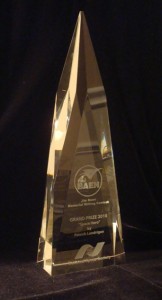
Sir Terry Pratchett (and isn’t that title inspiration for a fantasy tale just by itself?) with the help of Transworld Publishers has created a new award for debut novelists.
The winner of the “Terry Pratchett Anywhere But Here, Anywhen But Now Prize” will be offered a publishing contract with a £20,000 advance.
What will the winning novel be about? Pratchett says —
Anywhere but here, anywhen but now. Which means we are after stories set on Earth, although it may be an Earth that might have been, or might yet be, one that has gone down a different leg of the famous trousers of time (see the illustration in almost every book about quantum theory).
We will be looking for books set at any time, perhaps today, perhaps in the Rome of today but in a world where 2000 years ago the crowd shouted for Jesus Christ to be spared, or where in 1962, John F Kennedy’s game of chicken with the Russians went horribly wrong. It might be one day in the life of an ordinary person. It could be a love story, an old story, a war story, a story set in a world where Leonardo da Vinci turned out to be a lot better at Aeronautics. But it won’t be a story about being in an alternate Earth because the people in an alternate Earth don’t know that they are; after all, you don’t.
I was getting enthusiastic until I realized that authors living in every English-speaking country in the world except the U.S. are eligible to enter. Specifically, an author must be over 18, have no previous published full-length works of fiction and live in the UK, Ireland or the Commonwealth. (If not all of these countries are predominantly English-speaking, it should come as no surprise that the publisher’s rules require all entries to be written in English.) Ah, well, what would I have done with all that money anyway?
Judges for the award will be Pratchett, Tony Robinson, Mike Rowley of Waterstone’s and two members of the editorial team at Transworld Publishers. Submissions should be emailed to [email protected] by December 31, 2010. A shortlist of six entries will be announced on March 31, 2011. The winner will be announced in May 2011.
[Thanks to Andrew Porter for the story.]



